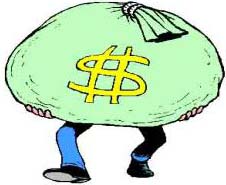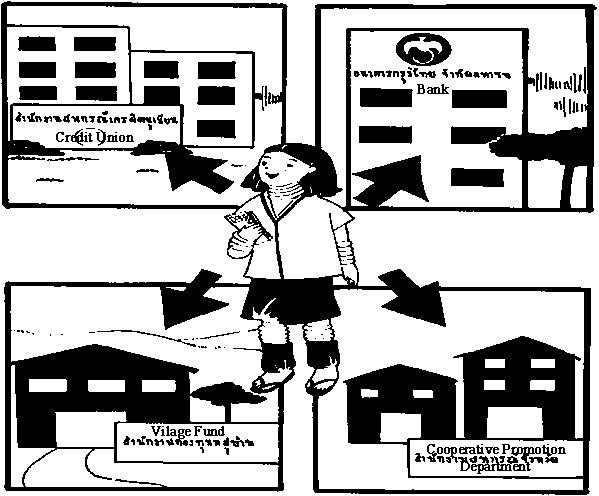
Capital money that is used in the business, whether for raw materials, equipment, tools, labour, electricity or water throughout the period from start of production to the sale of the final product. Even if you are not ready for sales yet, there must still be funds to use in the activity until you are able to sell the product and get your costs returned. You may not be able to get all of the money back at once, as the product may not all be sold at the same time.
Capital funds can be from savings, personal money, money borrowed from the Credit Union or the bank, money borrowed from lender, money provided by Government or other funding body. In the case of borrowed money, there will be interest. Whatever the amount of interest, it is the responsibility of the owner of the business. This will reduce the profit, as the interest is one of the costs of doing that business.
Personal funds means money from the pocket of the owners themselves. This is money that has been saved, or placed in savings accounts. For example the credit union. Personal funds means that there is no interest. However, in the community, there is often only a few people who are able to save money.
Money borrowed from Credit Union. In the case of the Credit Union, there are many types of money for the members to borrow. For example, money for emergencies. This can be borrowed quickly, but only low amounts of 1 000 to 3 000 Baht. Other loans can be used to borrow more money. For example, some loans mean that you can borrow 3 times the amount of money saved and it can be borrowed over a longer period than the emergency funds, for example 2 to 3 years. Special loans, are to borrow greater amounts of money, for example 5 times the amount saved, over a longer period. Some branches will consider loans to help with promotion of occupations. Theses are specifically developed, for example they may have lower interest rates than other loans. Another example is that there may be a payment free period before the loan must be returned for example loans for raising pigs may be free of payments for 6 months. That is, in the first 6 months, you do not have to repay the loan. In the 7th month, the loan starts to be repaid. This is done on the understanding of the committee that the pigs aren't ready to be sold but there is still costs such as feed and vaccines. Loans from the Credit Union have lower interest and are easier to obtain than from the bank.
Money borrowed from the bank is similar to money borrowed from the Union, but there may be a more detailed process to guarantee the loan. Currently many banks advertise that you can borrow quickly with easy steps.
Money from all members combined Members come together for stakes in the business. This is combining all of the stakes in the funds. This is good as when everyone provides funds, there is assistance to help look after the money and results of the business. Everybody shares in the benefits and losses in the business. Not providing a stake is the same as not being the owner. Another way in gathering funds together, or to get more funds, is to ask for money or support from another organisation. That organisation wants to support the group because they know the group can also help themselves. The organisation is confident in the business as the members have a stake and will be looking after the money as best as possible. If the capital money comes from outside only, then the members aren't interested, and the activity can fail as members don't see themselves as owners.
Money supported from organisations. Particularly through the government, there are many types. There is money, borrowed money, but mostly they support groups rather than individuals.
